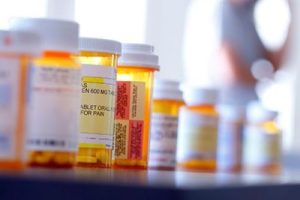
When we talk about impaired driving, we most often discuss the effects of alcohol. However, drunk driving is not the only kind of impaired driving. Many drugs – legal and illegal – can reduce your ability to drive safely. Operating a motor vehicle under the influence of any substance that impairs your ability to drive is illegal. Here, we discuss the increase in drugged driving and the ways drugs, including prescription medications, can make it unsafe for you to drive.
The Rise of Drugged Driving
Impaired driving has been a problem for as long as there have been cars. This has given law enforcement officials and scientists decades to find ways to identify drunk drivers and get them off the road. The breathalyzer helped apply standards to DUI laws and educate the public on how blood alcohol content (BAC) levels affect driving ability. In addition, drugged driving is a problem that seems to be on the rise. According to the Governors Highway Safety Association, 44% of drivers fatally injured in crashes in 2016 had drugs in their systems. More than half the drivers had used marijuana, opiates, or both.
Be Responsible: Drive Sober
If you’re impaired due to alcohol or drug use, it’s safest not to drive. This includes the use of illegal or legal drugs. There are many over-the-counter and prescription medications that could impact your ability to drive safely. Avoid getting behind the wheel if you’ve taken substances that:
- Diminish your concentration. Safe driving requires that you are alert, focused on following traffic safety rules and watching for hazards. Drugs may cause you to be more easily distracted and zone out, missing crucial seconds of reaction time that could help you avoid a crash.
- Disrupt physical coordination. Drugs can also physically slow your ability to react to danger effectively. Every second matters.
- Impair your judgment. Driving involves constantly assessing your situation and possible hazards. Drugs can reduce your ability to interpret all that information properly so that you can make safe decisions.
- Make you drowsy. Some studies suggest drowsy driving is just as dangerous as drunk driving. If you take any drugs, including prescription medications, that warn you not to “operate heavy machinery,” this means your car.
- Skew your perception. Any drugs that make you dizzy or cause you to hallucinate make it far too dangerous for you to drive. They might also make it more difficult for you to gauge your speed or position on the road.
- Make you aggressive. Certain drugs cause people to drive more aggressively or recklessly, which can also lead to a crash.
Getting a Safe Ride Home
Don’t take the risk. Avoid getting behind the wheel if you’re under the influence of drugs or medications that could impair your driving ability. This includes prescription or over-the-counter medications. Always make a plan for a safe ride home.